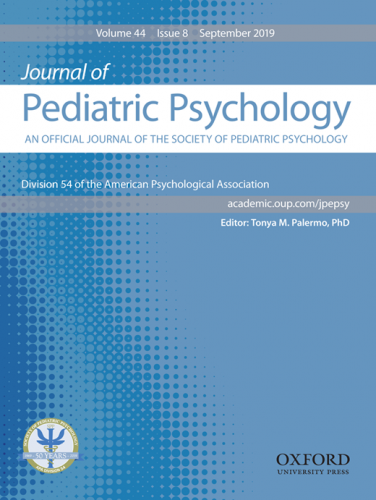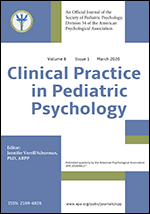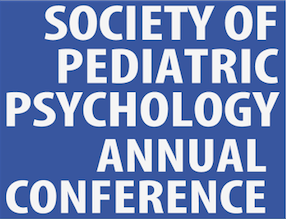Evidence Based Treatments
The Society of Pediatric Psychology Committee on Science and Practice is working with the membership to develop an evidence-based practice resource library for the membership. The resources listed on this page provide a comprehensive evaluation of the evidence for treatments offered for various conditions commonly treated by pediatric psychologists.
The treatments are separated by the population and presenting problem, and within each of these groups one or more types of intervention have been evaluated based on the criteria set out by Tolin and colleagues (2015). Please click on the intervention for a comprehensive summary of the treatment premise, details, treatment resources, sample characteristics, and a list of clinical trials, systematic reviews, and meta-analyses.
We hope that these resources will be valuable to our members in their clinical and research work. Thank you to the many SPP members who contributed to the writing and review of these resources.
Treatment for Parents and Families of Youth with Chronic Medical Conditions
- Cognitive-Behavioral Therapy: Includes range of techniques that promote identifying, challenging and modifying maladaptive or negative thoughts and behaviors that interfere with adjustment to and management of the child’s medical condition.
- Problem Solving Therapy: Teaches a structured approach to responding to real-life problems. Skills are typically taught in a sequence including identifying the problem, brainstorming solutions, decision making, solution implementation and evaluation/revision. Modeling, behavioral rehearsal, in-vivo practice, and performance feedback are used to support acquisition and generalization of skills.
- Systemic Therapies (Behavioral Family Systems Therapy, Family Therapy, Multisystemic Therapy): Alter patterns of interactions between family members and broader community systems (school, work, medical team) to support adjustment to and management of the child’s medical condition.
Promoting Treatment Adherence
- Multimodal Psychological Interventions: Generally comprised of multiple treatment components due to the complexity of adherence behaviors both in terms of what the treatment regimen requires and the numerous factors that can influence adherence behaviors. Common adherence-promotion intervention components include: 1) disease-specific education; 2) psychoeducation about adherence; 3) the teaching of cognitive and/or behavioral skills (i.e., self-monitoring of adherence behavior, problem-solving); 4) strategies targeting beliefs (i.e., self-efficacy) or emotions (i.e., depressive symptoms); 5) strategies targeting environmental context or resources (i.e., access to medication); and/or 6) strategies targeting social support.
Additional Information
- Fact Sheets: These fact sheets provide brief, accessible information on the prevalence, etiology, consequences, and evidence-based psychological assessment and treatment of common pediatric conditions.
- Evidence Based Assessments: These resource sheets provide a summary of the evidence base for standardized measures in different outcome domains.



